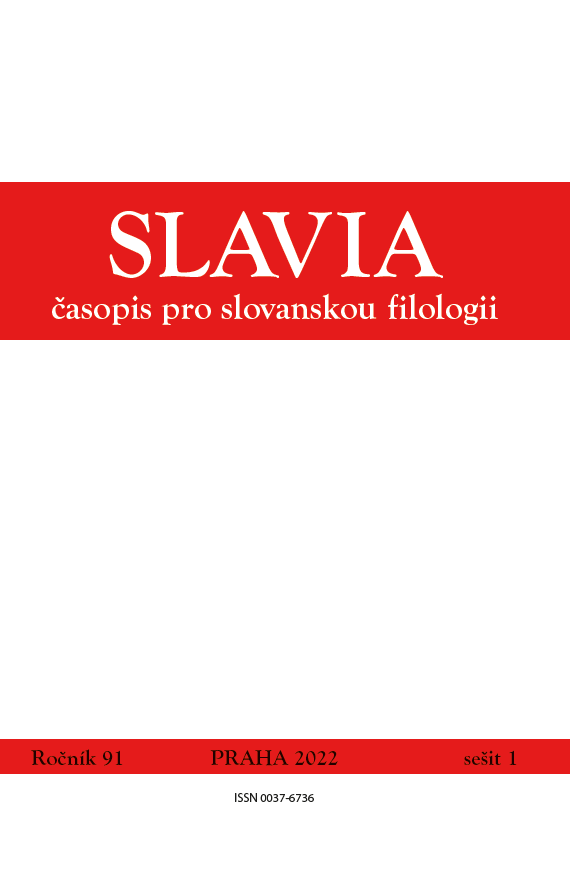Психопоетика чернетки: Камінний Господарь Лесі Українки
The Psychopoetics of the Draft: The Stone Host by Lesya Ukrainka
Author(s): Mariia Vasylivna Moklytsya, Tereza LevchukSubject(s): Ukrainian Literature
Published by: AV ČR - Akademie věd České republiky - Slovanský ústav and Euroslavica
Keywords: Ukrainian literature; psychopoetics; Lesya Ukrainka; manuscript; draft; textology
Summary/Abstract: The article actualizes the psychoanalytic approach in the study of draft manuscripts of classical texts, in particular Lesya Ukrainka’s drama The Stone Host. The draft of the work is almost twice as long as the final manuscript. The psychopoetic study of the draft is based on tracing changes in the interpretation of the key characters of the drama – Commander, Donna Anna, Don Juan, Dolores. The manuscripts of the drama The Stone Host and Lesya Ukrainka’s epistolary comments clearly point to the author’s general intension – to emphasize the role of the characters. From the draft to the published text, the images of the Commander, Donna Anna, Don Juan were transforming towards individualization and psychologization. As a result of text alterations and reductions, the psychology of the characters became more authentic: the figure of the Commander lost its extreme negative and positive features, which contributed to a deeper motivation of his action; Anna’s character became more complicated, her plot position strengthened; the cliché of Don Juan as a traditional image of the legendary seducer was smoothened. The most significant textual changes happened to the image of Dolores, whom the writer defined as close to herself (in a letter to O. Kobylyanska). This character became a magic mirror for Lesya Ukrainka, in which she was able to see herself in the course of time, to analyze and critically discard certain qualities. The initial version of the image, which appeared in the process of irrational creativity, is more deeply connected with the author than the final one. Lesya Ukrainka removed many fragments from the text as they lost their biographical connections and relevance. It has been found that the purposeful disengagement of events and characters from the author’s biography makes the work more intense and integral.
Journal: Slavia - časopis pro slovanskou filologii
- Issue Year: XCI/2022
- Issue No: 1
- Page Range: 23-37
- Page Count: 15
- Language: Ukrainian
- Content File-PDF

